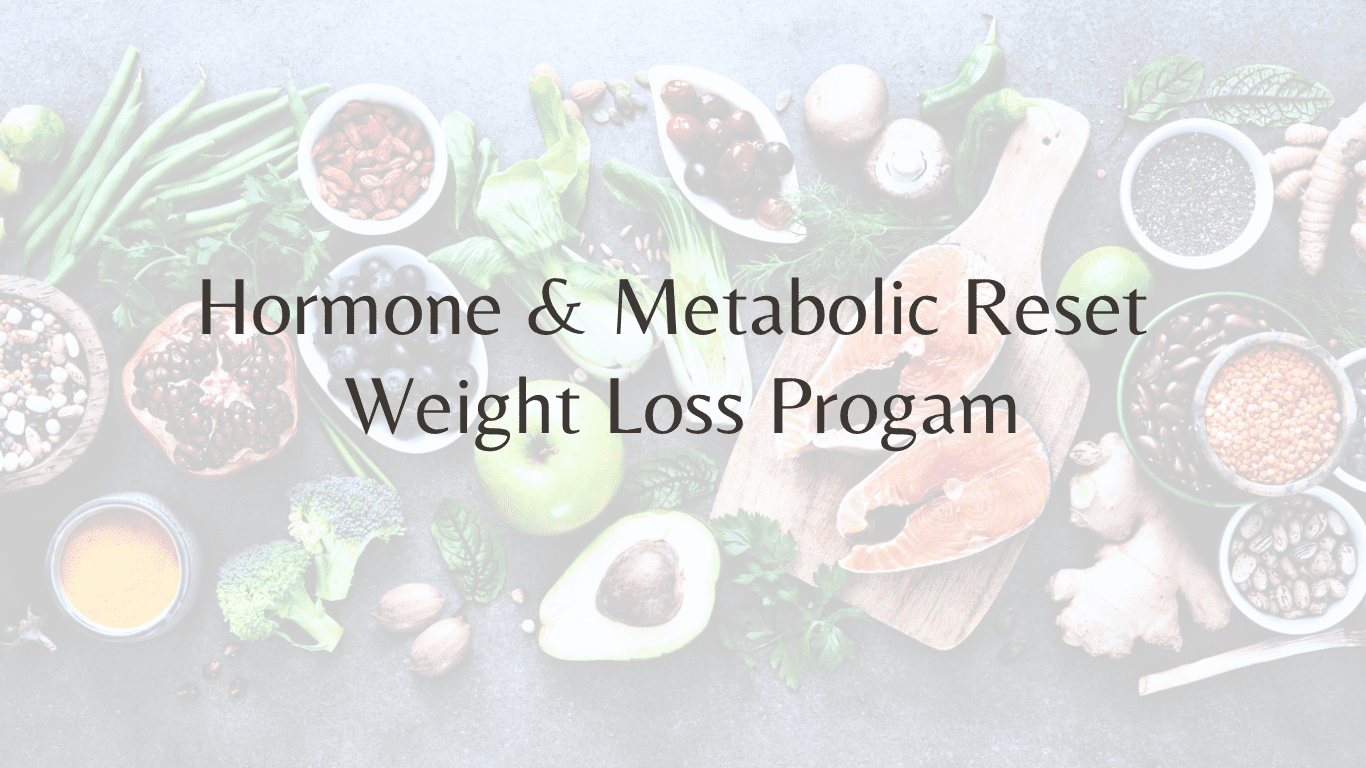
Stress Mess!!
We all have some level of stress, right? It may be temporary (acute), or long-term (chronic).
Acute stress usually won’t mess with your health too much. It is your body’s natural reaction to circumstances, and can even be life-saving. Then, when the “threat” (a.k.a. “stressor”) is gone, the reaction subsides, and all is well.
It’s the chronic stress that’s a problem. You see, your body has specific stress reactions. If these stress reactions are triggered every day or many times a day that can mess with your health. Stress (and stress hormones) can have a huge impact on your health.
Let’s dive into the “stress mess.”
HOW TO IDENTIFY YOUR STRESSORS
The sneaky thing about stress is that it isn’t always obvious what’s causing it… and therefore it’s hard to identify what’s derailing your fat loss goals.
Stress does come in the more obvious forms of a deadline at work, misbehaving kids, or a chronic illness.
But stress that impacts your ability to lose weight can also look like a daily caffeine habit, too much strenuous exercise, or even your evening commute.
Not to mention, stress can come from the best things in life, like planning a wedding, becoming a parent, or running your own business. And we hate to admit it when something we want is the biggest cause of stress in our lives.
What’s stressing you out isn’t always apparent. And those hidden, more subtle stressors could be what’s sabotaging your weight loss goals.
Anything that raises your cortisol levels, whether you feel it mentally or not, can impact your health and ability to lose weight.
If you’re struggling in your fat loss journey, it’s important to identify any areas that could be causing stress.
Here are some general categories that stressors usually fall into. Use this as a starting point to flesh out anything in your life that could be causing you stress.
- Emotional stress
- Physical stress
- Chemical stress
- Social stress
- Family stress
- Work stress
- Decision stress
- Isolation stress (thanks COVID-19!)

Mess #1 – Increased risk of heart disease and diabetes
Why save the best for last? Anything that increases the risk for heart disease and diabetes (both serious, chronic conditions) needs to be discussed.
Stress increased the risk for heart disease and diabetes by promoting chronic inflammation, affecting your blood “thickness,” as well as how well your cells respond to insulin.
Mess #2 – Immunity
Did you notice that you get sick more often when you’re stressed? Maybe you get colds, cold sores, or even the flu more frequently when you are stressed?
Well, that’s because stress hormones affect the chemical messengers (cytokines) secreted by immune cells consequently, they are less able to do their jobs effectively.
Mess #3 – “Leaky Gut.”
Stress can contribute to leaky gut, otherwise known as “intestinal permeability.” These “leaks” can then allow partially digested food, bacteria or other things to be absorbed into your body.
The stress hormone cortisol can open up tiny holes by loosening the grip your digestive cells have to each other.
Picture this: Have you ever played “red rover?” It’s where a row of children hold hands while one runs at them to try to break through. Think of those hands as the junctions between cells. When they get loose, they allow things to get in that should be passing right though. Cortisol (produced in excess in chronic stress) is a strong player in red rover!
Mess #4 – Sleep Disruption
Stress and sleep go hand-in-hand, wouldn’t you agree? It’s often difficult to sleep when you have very important (and stressful) things on your mind.
And when you don’t get enough sleep, it affects your energy level, memory, ability to think, and mood.
More and more research is showing just how important sleep is for your health. Not enough sleep (and too much stress) aren’t doing you any favors.
Mess #5 – Weight Gain or Inability to Lose Weight
Stress causes a cascade of chemical and hormonal changes in your body. These changes act as signals to your body letting it know it’s not safe. And when you try to add on a weight loss goal, which can in itself be stressful, your chances for success can become pretty slim.
Here are a few ways that stress can impact your ability to lose body fat.
STRESS IMPACTS HUNGER SIGNALING
Stress – especially the chronic kind – can impact how your body signals to your brain that it’s hungry.
Ghrelin, an appetite enhancer, and leptin, an appetite suppressant, work together to regulate your hunger signals.
But prolonged stress can lead to hormonal changes that increase appetite. An increase in cortisol under stress stimulates ghrelin and reduces the sensitivity of leptin.
When this happens, you can feel hungry when you aren’t actually hungry at all. Stress eating is a real physiological response to an increase in cortisol. It’s not all in your head!
And if your stress lasts over a long period of time, your body can become resistant to leptin. With leptin resistance, your brain has a difficult time recognizing that your body is pumping out the leptin in an attempt to curb your hunger.
Without recognition of this hormone, you’ll be hungry and likely to eat more, leading to weight gain.
If you look at it from a hormonal standpoint, losing weight while you’re stressed is a nearly insurmountable task!
Your body is going to be working against your best efforts to shed fat, no matter how hard you try. And pushing yourself to lose weight by training and cutting calories typically just adds to your stress levels.

STRESS ENCOURAGES BODY FAT ACCUMULATION
Holding onto body fat is one of our body’s best defense mechanisms against stress.
When our ancestors experienced stress, it was likely because they were actually in a life-threatening situation. Maybe they had to run and hide from a wild animal, or maybe there was a food shortage during the winter.
In these scenarios, holding onto body fat was necessary and beneficial for survival.
In modern society, we’re under constant stress. But not typically the kind of stress that threatens our lives or our access to food. This makes that same survival mechanism not as helpful as it once was.
Several studies have examined the relationship between high cortisol levels and an increase in abdominal fat.
Visceral fat contains a specific enzyme that converts inactive cortisone into active cortisol.
Stress increases your chances of holding onto fat in your abdomen. But having more belly fat also increases your cortisol levels.
This makes the stress and fat accumulation a cycle that’s hard to break. And trying to lose weight while you’re stressed may only make it worse.

STRESS ALTERS YOUR METABOLISM
Stress can also impact your body’s metabolism, making even the most moderate fat loss goals more difficult to reach.
The release of cortisol, especially when it’s chronic, changes the way your body metabolizes glucose.
And when your body is unable to efficiently process the glucose (carbs) that you eat, you can become insulin resistant.
Insulin resistance is a big contributor to weight loss resistance.
So when you’re stressed and experiencing blood sugar irregularities, your body is likely also holding onto the extra fat you’re trying to lose.
Chronic stress also pushes your body to produce a stress-related protein called betatrophin.
Betatrophin slows fat metabolism. This makes it more difficult for your body to break down its fat stores and for you to lose weight.
Stress is often at the root of sluggish metabolism and your inability to reach your fat loss goals. And trying to lose weight while you’re stressed often leads to nothing but frustration and unfortunately… more stress.

TIPS FOR LOWERING STRESS AND INCREASING FAT LOSS
It should be clear by now that your stress levels and your health and ability to lose extra body fat are intimately connected.
When you try to push towards a fat loss goal while you’re under chronic unmanaged stress, all you’re doing working against your body and adding to your stress.
If you’re chronically stressed, lowering your stress levels will be the single most beneficial thing you do to help make sustainable weight loss possible.
But reducing our stress is often easier said than done. And you can’t expect your stress, especially if it’s baked into your lifestyle, to disappear overnight.
Working to reduce your stress and decrease your cortisol levels is just that, work. It will take a conscious effort each day to make choices that lower your stress, not add to it.
Here are some simple ways to get started lowering your stress levels.
REDUCING STRESSORS IN YOUR LIFE IS AN OBVIOUS FIRST STEP. CAN YOU:
- Put less pressure on yourself?
- Ask for help?
- Say “no”?
- Delegate to someone else?
- Finally, make that decision?
LET IT GO
At the risk of getting Frozen songs stuck in your head, sometimes our worst stressors are ones that we have complete control over. Whether that’s an overly busy schedule or toxic relationships, many things that stress us out on an ongoing basis are things that we could remove from our lives if we chose to do so.
I’m not saying it’s easy. There are so many things our modern society deems “normal” that are actually horrendous for our stress levels. Things like working 50+ hour weeks, watching the overly negative news every evening, constantly trying to climb the corporate ladder, believing our house has to be spotless, and committing to social events we wanted to say no to. But in order to remove as much stress from your life as possible, you have to be willing to assess the decisions you make on a daily basis and how they’re affecting your stress regularly.
Maybe that means you need to pull your kid off the soccer team, turn down a promotion, or walk away from a toxic friendship. These things aren’t easy to do, but you must realize the power you have in making choices that add to or take away from your stress.
Let go of the things that aren’t serving you or your family. I promise you’ll be glad you did!
NO MATTER HOW HARD YOU TRY, YOU WON’T ELIMINATE STRESS ALTOGETHER. SO, HERE ARE A FEW THINGS YOU CAN TRY TO HELP REDUCE ITS EFFECT ON YOU:
- Deep breathing
- Meditation
- Walk in nature
- Unplug (read a book, take a bath)
- Exercise (yoga, tai chi, etc.)
- Connect with loved ones
- Adequate sleep- this is crucial. 7+ hours regularly is essential
- Adaptogens. These are natural herbs that promote balance and homeostasis in the body. Some of my favorites that I take regularly are ashwagandha, rhodiola, schisandra berry, and tulsi/holy basil
Exercising regularly is one of the best ways to reduce cortisol levels. Gentle exercise, like walking, swimming, and slow jogging are especially beneficial for lowering cortisol and increasing endorphins.
Regular exercise is also essential for sustainable weight loss. So while you’re working to lower your stress levels you might find that you drop a few pounds in the process. Just don’t let your exercise become too strenuous, which can have the opposite effect on your stress levels.
GET ENOUGH SLEEP
Sleep deprivation is a huge stressor on our bodies. Your cortisol can rise one day after slight sleep deprivation. Getting 7-9 hours of quality sleep a night is key to reducing stress and achieving fat loss.
To make this happen you might need to institute a strict bedtime, turn off your phone a few hours before you go to sleep, and focus on relaxing before bed. If you’re like me and you’re using your phone a lot more lately, try making your bed a “no-phone-zone” for a week and see how much better you sleep those nights!
EAT REAL FOOD
Inflammatory foods are often sources of systemic inflammation and chronic stress. Switching your diet to one filled with real foods can help lower your stress burden.
Avoiding or at least reducing most processed foods (especially refined grains and sugars) and filling your plate with healthy cooking oils, fresh meats, and lots of veggies and leafy greens is a great way to fuel your body well to help encourage cortisol reduction and weight loss. Drink water instead of sodas or juices. Minimize your alcohol consumption or avoid it entirely. These are all simple tweaks that can help reduce physical stress in your body and help you lose extra body fat without having to count calories or macros.
THE BOTTOM LINE
Stress is a huge and often underappreciated factor in our health. It can impact your physical body much more than you might realize.
Stress has been shown to increase the risk for heart disease and diabetes, affect your immune system, digestion and sleep.
There are things you can do to both reduce stressors and also to improve your response to it. You can ditch that stress mess!
Now it’s your turn, have you noticed that it’s more difficult to lose weight while you’re stressed? What were some effective ways that you’ve used to reduce your stress levels? Share your thoughts in the comments below!







